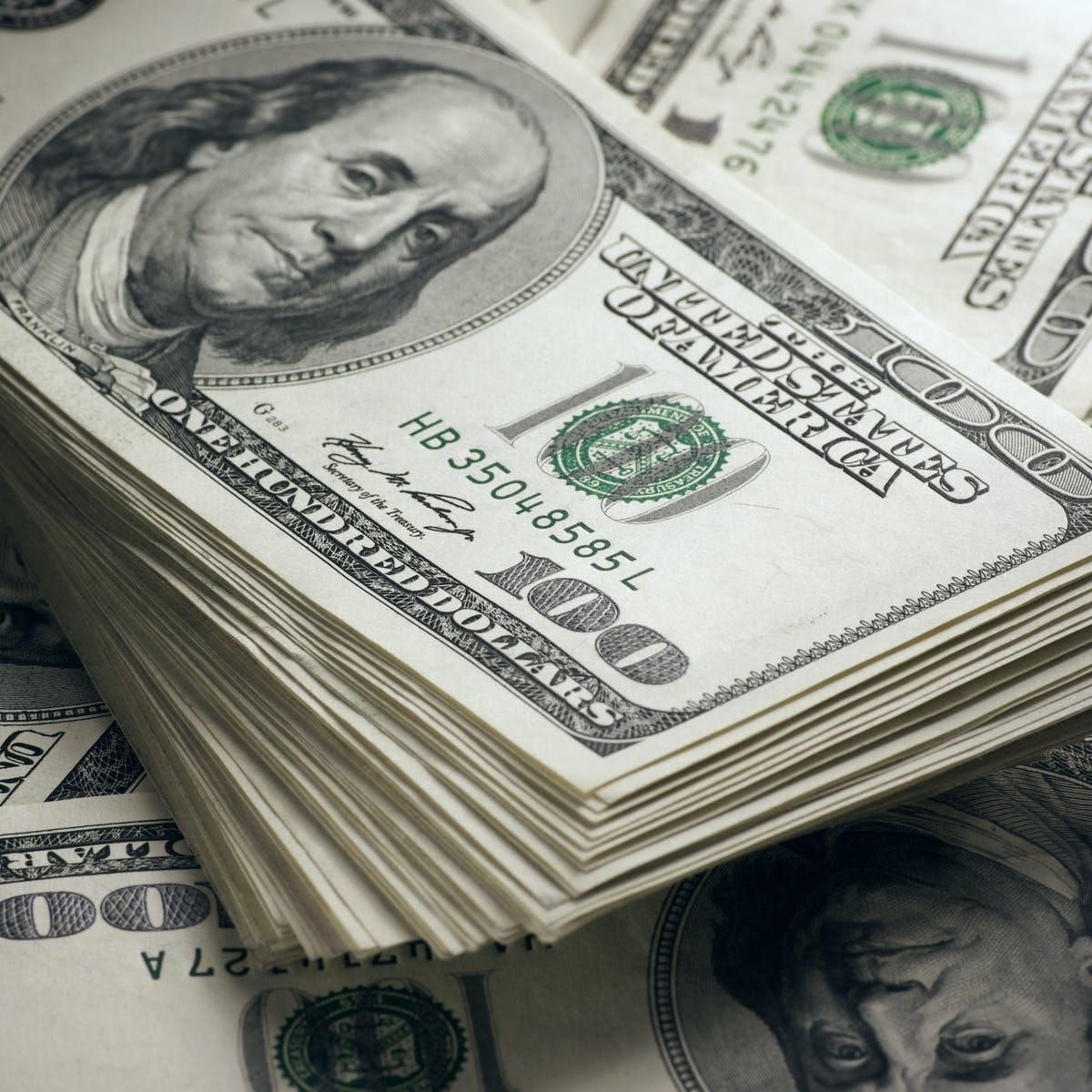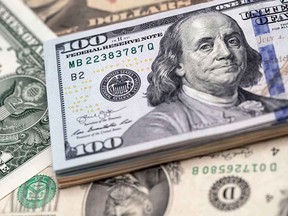The Dollar and the Republic: How America’s Political Strength Reinforces Its Economic Dominance
Introduction
The U.S. dollar enjoys a uniquely privileged position in the global economy, functioning not just as America's currency but as the world’s reserve currency, unit of account, and primary medium of international trade. This "exorbitant privilege," as French finance minister Valéry Giscard d’Estaing famously called it, allows the United States to borrow cheaply, run persistent trade deficits, and influence the global financial system to an unparalleled degree.
But what underpins this dominance? Is it purely economic size, military might, or historical inertia? Or is there a deeper connection between the U.S. dollar’s special status and the structural strength and resilience of the American government and political system—particularly in contrast to its Western allies?
This post argues that yes, there is a strong and underappreciated correlation between the dollar’s supremacy and the enduring resilience of American democratic institutions, especially its constitutional protections like free speech, decentralized governance, and systemic checks and balances.
The Dollar's Global Dominance: A Brief Overview
As of 2025:
-
The U.S. dollar accounts for nearly 60% of global foreign exchange reserves.
-
It is used in about 88% of global forex transactions.
-
Oil, commodities, and most international contracts are priced in dollars.
-
The SWIFT system, dominated by the dollar, is the financial nervous system of global trade.
Despite rising powers and growing multipolarity, no viable alternative has replaced the dollar. Even the euro, yuan, or any basket-based currency like the IMF’s SDR have failed to dislodge it. Why?
Most analysts point to economic fundamentals: the size of the U.S. economy, deep and liquid capital markets (especially Treasury bonds), and the power projection of the U.S. military. But this misses a key dimension: trust. And trust, especially long-term, is built not just on economic might, but institutional stability.
America's Institutional Edge
-
Constitutional Resilience and Rule of Law
Unlike many European systems that rely on parliamentary supremacy, the U.S. operates under a rigid, codified constitution that has survived civil war, depression, global wars, and multiple political crises. The American model is based on separation of powers, judicial independence, and a Bill of Rights that is difficult to amend. This makes sudden swings in policy—especially those that might undermine property rights, contracts, or the value of money—rare.
For foreign investors, this translates into long-term predictability and reduced political risk.
-
Freedom of Speech and Transparency
Free speech in the United States enjoys stronger legal protections than in any other major democracy. Landmark Supreme Court decisions—from New York Times Co. v. Sullivan to Citizens United v. FEC—have enshrined speech freedoms to a degree not matched even in Western Europe.
In many European countries, hate speech laws, censorship related to “offensive” topics, and government involvement in regulating online discourse are more prevalent. While these may arise from good intentions, they create a less robust public sphere—and potentially more opaque decision-making.
Markets, after all, thrive on information. A society with vibrant debate, adversarial press, whistleblower protection, and free academic inquiry is more likely to expose corruption, correct errors, and adapt to shocks. The First Amendment is not just a human rights principle—it is an economic asset.
-
Federalism and Decentralized Adaptability
The U.S. federal system, with its 50 semi-sovereign states, allows for policy experimentation and regional resilience. Even when Washington is gridlocked, states like California or Texas can forge ahead with innovations in energy, education, or regulation. This decentralization enhances systemic adaptability.
In contrast, European governments are more centralized or, in the EU’s case, operate through a fragile supranational framework that has often struggled to respond quickly to crises (e.g., the Eurozone crisis or migration challenges).
-
Checks, Balances, and Political Durability
The U.S. system’s checks and balances have repeatedly proven their worth. From Nixon’s resignation to Trump’s impeachments, the institutions of Congress, the judiciary, and civil society have shown that they can constrain executive overreach—even in polarized times.
In many Western democracies, power is concentrated in the executive branch, and rapid policy shifts are more common after elections. This may be efficient, but it introduces volatility that markets dislike.
The Dollar as a Proxy for Political Trust
The central role of the U.S. dollar reflects not just financial engineering or historical accident, but the perception that the United States will uphold contracts, protect capital, enforce the rule of law, and sustain institutions over time.
-
Why does the world buy U.S. Treasuries in times of crisis—even when America is running record deficits? Because they believe the system will endure.
-
Why do central banks prefer to hold dollar reserves? Because the dollar is not just backed by GDP or bombs—it’s backed by a Constitution.
-
Why haven’t the euro or yuan replaced the dollar? Because the EU’s governance is fragile and technocratic, and China’s institutions remain authoritarian and opaque.
In essence, the dollar is not just a currency; it is a proxy for American governance.
Challenges to Resilience: Fragility in the System?
That said, American resilience is not invulnerable. Political polarization, eroding public trust, disinformation, and the weaponization of financial tools (e.g., sanctions) could undermine the dollar’s aura of neutrality.
Moreover, the “Triffin dilemma” still holds: the dollar’s global role requires the U.S. to run deficits, which over time can create financial imbalances and external resentment.
Still, compared to most global alternatives, the American political system remains remarkably robust.
Conclusion: Institutions Matter
The supremacy of the U.S. dollar is not merely a story of military power or economic scale—it’s also a story of institutional durability. America’s political system, with its emphasis on free speech, federalism, legal predictability, and constitutional constraint, has undergirded the trust that global markets place in the dollar.
In contrast to even Western European allies—many of whom share democratic values but lack the constitutional rigidity, speech absolutism, or federal adaptability of the U.S.—America remains uniquely equipped to maintain monetary dominance.
So yes, there is a correlation: The strength and resilience of the American government, especially in upholding freedoms like speech and enterprise, are foundational to the dollar’s global status. The greenback’s value, ultimately, is not just printed by the Fed—but protected by the Constitution.
Keywords: U.S. dollar, reserve currency, American resilience, free speech, global trust, economic dominance, institutional strength, Western Europe, constitutional governance, financial stability
डॉलर और लोकतंत्र: अमेरिकी सरकार की मजबूती और वैश्विक मुद्रा में उसका विशेष दर्जा
प्रस्तावना
अमेरिकी डॉलर विश्व अर्थव्यवस्था में एक अनोखी और विशेष स्थिति रखता है। यह केवल अमेरिका की मुद्रा नहीं है, बल्कि यह दुनिया की प्रमुख आरक्षित मुद्रा, लेन-देन का माध्यम, और अंतर्राष्ट्रीय व्यापार की भाषा बन चुका है। इसे फ्रांस के वित्त मंत्री वैलेरी गिस्कार द'एस्ते ने “exorbitant privilege” (अत्यधिक विशेषाधिकार) कहा था—एक ऐसा दर्जा जो अमेरिका को सस्ती दरों पर उधार लेने, लगातार व्यापार घाटा चलाने और वैश्विक वित्तीय प्रणाली को प्रभावित करने की शक्ति देता है।
लेकिन इस प्रभुत्व की बुनियाद क्या है? क्या यह सिर्फ आर्थिक ताकत, सैन्य शक्ति या ऐतिहासिक संयोग है? या क्या इस स्थिति के पीछे अमेरिका की राजनीतिक प्रणाली की मजबूती, विशेष रूप से उसकी लोकतांत्रिक संस्थाओं और संविधानिक आज़ादी, एक गहरा कारण है?
इस लेख में हम तर्क करेंगे कि हां—अमेरिकी डॉलर की वैश्विक स्थिति और अमेरिकी सरकार की संस्थागत शक्ति और लचीलापन (resilience) के बीच गहरा और अक्सर अनदेखा संबंध है, विशेष रूप से जब इसकी तुलना पश्चिमी यूरोप से की जाए।
डॉलर का वैश्विक प्रभुत्व: एक संक्षिप्त अवलोकन
2025 तक:
-
अमेरिकी डॉलर वैश्विक विदेशी मुद्रा भंडार का लगभग 60% है।
-
यह लगभग 88% वैश्विक मुद्रा विनिमय लेन-देन में उपयोग होता है।
-
तेल, अन्य वस्तुएँ और अंतर्राष्ट्रीय अनुबंध अधिकांशतः डॉलर में होते हैं।
-
SWIFT प्रणाली—जो कि डॉलर पर आधारित है—वैश्विक व्यापार का तंत्रिका तंत्र है।
चीन के उदय और बहुध्रुवीय (multipolar) विश्व के बावजूद, कोई भी वैकल्पिक मुद्रा डॉलर को प्रतिस्थापित नहीं कर पाई है—न यूरो, न युआन, और न IMF का SDR। क्यों?
अधिकांश विश्लेषक आर्थिक कारणों की ओर इशारा करते हैं: अमेरिकी अर्थव्यवस्था का आकार, ट्रेज़री बॉन्ड्स का गहराईपूर्ण बाज़ार, और सैन्य शक्ति। लेकिन ये विश्लेषण एक महत्वपूर्ण पहलू को नज़रअंदाज़ कर देते हैं: विश्वास (trust)। और यह विश्वास केवल अर्थव्यवस्था से नहीं, बल्कि संस्थागत स्थिरता (institutional stability) से आता है।
अमेरिका की संस्थागत बढ़त
1. संविधानिक मजबूती और क़ानून का शासन
अमेरिका का संविधान एक कोडित और कठोर ढांचा है, जो गृह युद्ध, महामंदी, विश्व युद्ध और कई राजनीतिक संकटों के बावजूद टिका रहा है। इसकी शक्ति तीन शाखाओं (कार्यपालिका, विधायिका, न्यायपालिका) के पृथक्करण और नागरिक अधिकारों के स्पष्ट संरक्षण में निहित है।
यह स्थायित्व अंतर्राष्ट्रीय निवेशकों के लिए दीर्घकालिक विश्वसनीयता प्रदान करता है।
2. अभिव्यक्ति की स्वतंत्रता और पारदर्शिता
अमेरिका में अभिव्यक्ति की स्वतंत्रता दुनिया की किसी भी बड़ी लोकतांत्रिक व्यवस्था से अधिक संरक्षित है। सुप्रीम कोर्ट के कई ऐतिहासिक फैसले—New York Times v. Sullivan और Citizens United जैसे—इस स्वतंत्रता को पवित्र बनाते हैं।
इसके विपरीत, पश्चिमी यूरोप में कई देशों में घृणा भाषण कानून, सेंसरशिप, और सरकारी हस्तक्षेप अधिक व्यापक हैं। यह लोकतंत्र के खुले संवाद में बाधा उत्पन्न करता है, जिससे सूचना का प्रवाह कमज़ोर होता है—जबकि बाज़ार सूचना पर ही फलते-फूलते हैं।
3. संघीय प्रणाली और विकेंद्रीकरण
अमेरिका की संघीय प्रणाली, जिसमें 50 राज्य अर्ध-स्वायत्त हैं, नीति नवाचार और क्षेत्रीय उत्तरदायित्व को प्रोत्साहित करती है। वाशिंगटन में गतिरोध होने पर भी, कैलिफ़ोर्निया या टेक्सास जैसे राज्य अग्रणी भूमिका निभा सकते हैं।
यूरोप की केंद्रीकृत शासन व्यवस्था और यूरोपीय संघ का जटिल ढांचा, अक्सर संकटों में सुस्त और विभाजित नज़र आया है।
4. संस्थागत संतुलन और राजनीतिक स्थायित्व
अमेरिकी संस्थाएं—जैसे कि कांग्रेस, न्यायपालिका और स्वतंत्र प्रेस—ने कार्यपालिका की शक्ति पर बार-बार नियंत्रण स्थापित किया है। निक्सन का इस्तीफा हो या ट्रंप की महाभियोग प्रक्रिया, इन संस्थाओं ने अपनी ताकत दिखाई है।
यूरोपीय देशों में, कार्यपालिका पर ज़्यादा केंद्रित शक्ति होती है, जिससे नीतियों में अस्थिरता बढ़ती है—जो बाज़ारों के लिए जोखिमभरा होता है।
डॉलर: एक मुद्रा नहीं, विश्वास का प्रतीक
अमेरिकी डॉलर केवल मुद्रा नहीं, बल्कि एक राजनीतिक और कानूनी व्यवस्था में विश्वास का प्रतीक है।
-
संकट के समय देश U.S. Treasuries क्यों खरीदते हैं? क्योंकि उन्हें अमेरिकी व्यवस्था के स्थायित्व पर भरोसा है।
-
केंद्रीय बैंक डॉलर क्यों रखते हैं? क्योंकि उन्हें विश्वास है कि अमेरिका संपत्ति अधिकारों की रक्षा करेगा, अनुबंधों को लागू करेगा, और व्यवस्था स्थिर रहेगी।
-
यूरो या युआन क्यों प्रतिस्थापन नहीं बन सके? क्योंकि यूरोपीय संघ की प्रणाली नाज़ुक है और चीन की शासन व्यवस्था पारदर्शी नहीं।
क्या अमेरिकी व्यवस्था अडिग है?
हालांकि अमेरिकी संस्थाएं अब भी मज़बूत हैं, लेकिन कुछ खतरे भी उभर रहे हैं: राजनीतिक ध्रुवीकरण, गलत सूचना का प्रसार, और वित्तीय प्रणाली के राजनीतिक हथियारकरण से डॉलर की निष्पक्षता प्रभावित हो सकती है।
फिर भी, वैश्विक विकल्पों की तुलना में अमेरिका की प्रणाली अधिक स्थायित्व और लचीलापन दर्शाती है।
निष्कर्ष: संस्थान ही आधार हैं
डॉलर की सर्वोच्चता सिर्फ सैन्य शक्ति या अर्थव्यवस्था की बात नहीं—बल्कि यह अमेरिकी संस्थाओं के स्थायित्व की कहानी है। संविधान, अभिव्यक्ति की स्वतंत्रता, विकेंद्रीकरण और प्रणालीगत संतुलन ने इस विश्वास को बनाया है कि अमेरिका वैश्विक वित्त में दीर्घकालिक भूमिका निभा सकता है।
पश्चिमी यूरोप भले ही समान लोकतांत्रिक मूल्यों का पालन करे, लेकिन अमेरिका की संरचनात्मक सुरक्षा और स्वतंत्रता की गहराई अब भी विशिष्ट है।
इसलिए, यह स्पष्ट है: अमेरिकी डॉलर की वैश्विक स्थिति और अमेरिकी शासन प्रणाली की ताकत के बीच गहरा संबंध है। यह डॉलर की छपाई से नहीं, बल्कि संविधान की सुरक्षा से उपजा हुआ मूल्य है।
कीवर्ड्स: अमेरिकी डॉलर, वैश्विक मुद्रा, अभिव्यक्ति की स्वतंत्रता, अमेरिकी संविधान, संस्थागत मजबूती, वित्तीय स्थायित्व, पश्चिमी यूरोप की तुलना
डॉलर और लोकतंत्र: अमेरिकी सरकार की मजबूती और वैश्विक मुद्रा में उसका विशेष दर्जा https://t.co/Y7uGo8kWLG
— Paramendra Kumar Bhagat (@paramendra) July 26, 2025


